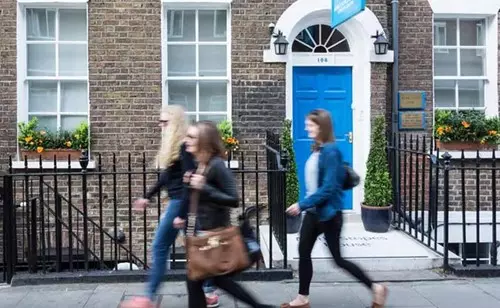London, 9th July 2020
MSI Reproductive Choices UK’s response to “investigation” by radical anti-choice group, Christian Concern, into the abortion care telemedicine service
If you are covering radical anti-choice group, Christian Concern’s, “investigation” into the MSI UK abortion care telemedicine service, you may find the following statement useful.
Richard Bentley, Managing Director for MSI UK and Dr Jonathan Lord, Medical Director for MSI UK, said:
In March, the UK government introduced temporary guidance to allow women to take medical abortion pills at home, up to 10 weeks gestation. The move, in line with pre-existing international and national guidance, was welcomed by health providers as a way for women to receive care during COVID-19, without needing to travel or putting additional strain on the health system.
It is therefore disappointing that a radical anti-choice group, Christian Concern, which campaigns specifically to restrict lawful access to lifesaving abortion care, is now trying to derail this policy with a so called ‘investigation’ that saw three women abusing the system to obtain abortion pills.
Early medical abortion at home is safe, effective and convenient. Thanks to its introduction, 25,000 women across the UK have been able to access timely, high-quality care. During these exceptional times, as a result of telemedicine provision, days spent waiting for an abortion have crucially been reduced meaning women can access abortion care earlier in their pregnancies. Had telemedicine not been available, there is a real danger that some women may have turned to illicit sources for abortion pills and would not have had the safeguarding and aftercare provided by a regulated service.
Christian Concern stated that there were no checks done on whether the women who called MSI Reproductive Choices were registered with the GP practice they provided, and that there were no checks done to establish the women’s identities or their gestation.
However, the process of providing a registered GP is not a legal requirement. Direct access to healthcare services is considered best practice and GPs are often not directly involved in services. Abortion care is also considered urgent care, meaning that abortion providers are legally obliged to provide care, whether a woman is registered at a GP service or not, or even if she is not a UK resident.
As an abortion care provider, MSUK also does not perform identity checks – the same as all NHS healthcare settings in the UK.
We trust women to give us honest information and, in our experience, the only people who knowingly abuse that system are, as in this case, anti-choice organisations.
We are also still seeing many clients in our clinics as needed or requested. Of the total number of medical abortions MSI UK has provided since 6 April 2020, approximately 53% have been via telemedicine and 47% through a face-to-face consultation.
Reassuringly, of those women who have come into a clinic to be scanned, only 1% had a scanned date which would have resulted in a different treatment being offered to comply with the current law, although there would have been no safety concerns if they had used the medical abortion service.
As other organisations have identified, since introducing telemedicine services, MSI UK has seen more than a 20% increase in the number of safeguarding disclosures, including of domestic abuse and sexual violence, allowing us to intervene and support these vulnerable women.
All women are counselled on what to expect during their abortion, given details of how to take the medicine and advised to call back if they are worried about anything with access to specialist 24-hour advice.
Christian Concern also stated that the investigations show that telemedicine can be manipulated by a third party, to obtain abortion pills for an underage sexual abuse survivor. This suggestion is also unfounded as our teams deal directly with individuals.
In fact, what we have seen, is that underage survivors can find it less frightening to talk about distressing and intimate details over the phone. Our teams were recently able to safeguard a 12-year-old girl, who disclosed to us that she was being raped by two relatives. This is the reality of safeguarding in abortion care.
Further, we also know that controlling pregnancy and access to contraception is a method of control widely used by perpetrators of domestic abuse and, in our experience, we are more likely to encounter women who are planning to end their pregnancy without their abusive partner or family’s knowledge, than we are to encounter a woman who has been coerced into attending a clinic when she wishes to keep her pregnancy.
At a time when COVID-19 has caused unprecedented pressure on healthcare services, many, including the NHS and GPs, are using telemedicine as their main patient interaction. In England, Matt Hancock said ‘we have moved to a principle of digital first in primary care and with outpatients, unless there are clinical or practical reasons, all consultations should be done by telemedicine.’ In doing so, providers are trusting that their patients are offering up accurate medical information when accessing legal healthcare, which the women who called on behalf of Christian Concern did not do.
At MSI Reproductive Choices, we are proud to be the first national abortion provider to have introduced telemedicine and have been able to support women in a proactive, responsible, safe and caring way. Our evidence backed approach to providing telemedicine is entirely in keeping with other NHS providers and GPs across the country.
All the ‘investigation’ by Christian Concern demonstrates, is that three women pretending to be distressed and in need of an abortion, were able to access safe and effective abortion care without risk to themselves or their families, in line with current UK regulations.
For further information and interviews please contact:
Email: press@msichoices.org.uk
Telephone: +44(0)7769166516










































